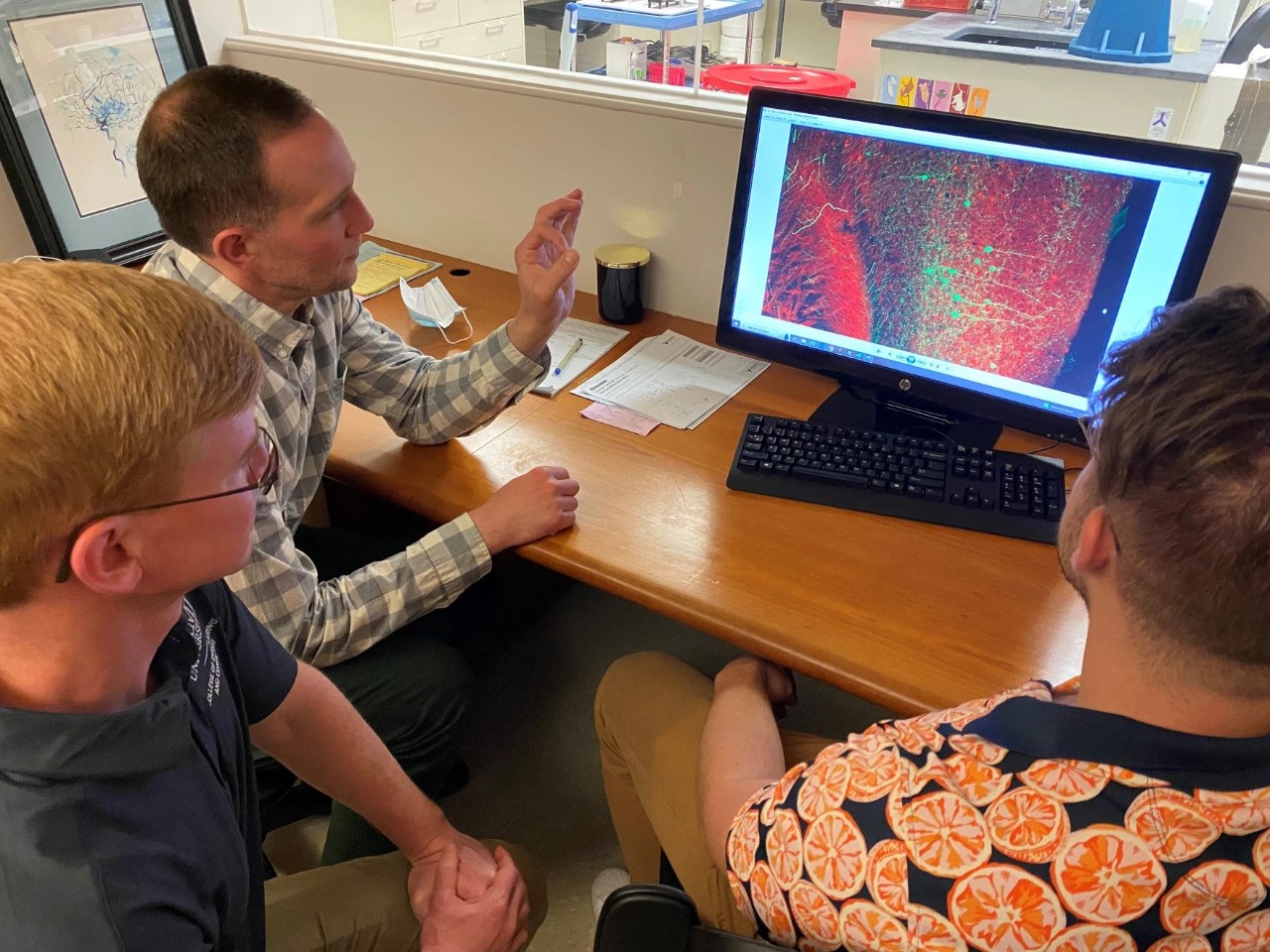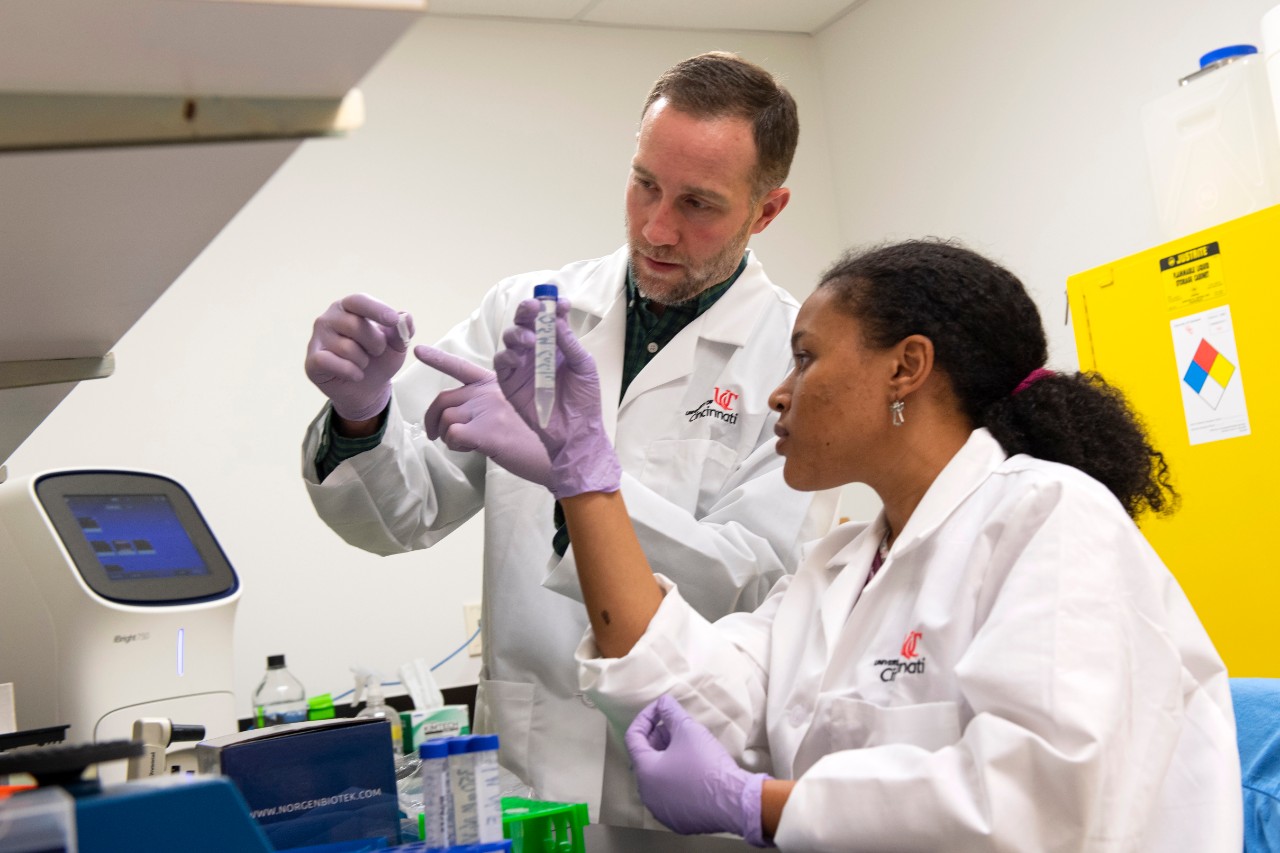
WVXU: Researchers look to variations of psychedelic drugs as the future of mental health treatment
UC expert says research shows promise for improving treatment for mental health disorders
University of Cincinnati researchers are collaborating with researchers at Miami University to explore ways that psychedelic drugs could be used as treatments for a variety of mental illnesses. Andrew Jones, assistant professor of chemical, paper and biomedical engineering at Miami University, has successfully manufactured psilocybin in the lab. He is sharing those compounds with Eric Wohleb, PhD, of the Department of Pharmacology and Systems Physiology at the UC College of Medicine the compounds to test in Wholeb's lab.
WVXU produced a story on the research in which Wohleb will soon expand his research to study new compounds in lab-manufactured magic mushroomsto test their effectiveness in treating mental illness in animal models.

Eric Wohleb, PhD, and Christina Singh, research fellow/Photo/Colleen Kelley/UC Marketing + Brand
“That would kind of be the first pass at whether we see any beneficial effects of some of the compounds,” Wohleb said. “There are a few hurdles to jump through as far as DEA regulations and those types of things that we’re going to have to take care of but it’s a nice way because we’re relatively close and we have the capacity to collaborate.”
WVXU reported that one in four people in the U.S. are affected by mental disorders. Psychedelics could potentially help treat depression, anxiety, PTSD, obsessive-compulsive disorder, addiction, anorexia, bulimia, and more, according to Wohleb.
“An individual suffering from PTSD might also have a lot of depressive symptoms or anxiety symptoms and so finding these compounds that can change or alleviate symptoms across multiple disorders I think is really profound.”
Wohleb says there has been a fundamental shift in how psychiatry operates and it’s exciting to be working in this space.
Lead photo of Eric Wohleb, Andrew Jones and UC graduate student Alex Kuhn/Ann Thompson/WVXU
Next Lives Here
The University of Cincinnati is classified as a Research 1 institution by the Carnegie Commission and is ranked in the National Science Foundation's Top-35 public research universities. UC's graduate students and faculty investigate problems and innovate solutions with real-world impact. Next Lives Here.
Related Stories
Phenols, found in many products, could upset heart's rhythms
October 7, 2024
Chemicals called environmental phenols include food preservatives, plastics ingredients such as BPA and the parabens in shampoos, so they are ubiquitous in everyday life. Now, University of Cincinnati research suggests that higher exposure to phenols might trigger changes in the heart's electrical system and rhythms.
WVXU: Researchers look to variations of psychedelic drugs as the future of mental health treatment
June 6, 2023
Eric Wohleb of the UC Department of Pharmacology and Systems Physiology in the College of Medicine is collaborating with a researcher at Miami University to explore the use of magic mushrooms as treatments for a variety of mental health conditions. WVXU produced a story on the efforts.
55KRC: UC researchers examine role of stress in Parkinson's disease
March 8, 2022
University of Cincinnati researchers Kim Seroogy, Teresa Reyes and James Herman were featured on 55KRC's Simply Medicine program to discuss their research into the role of stress in Parkinson's disease.
